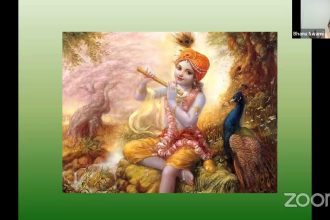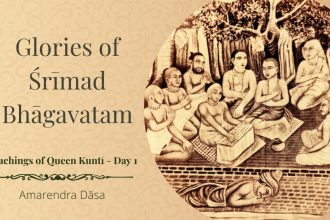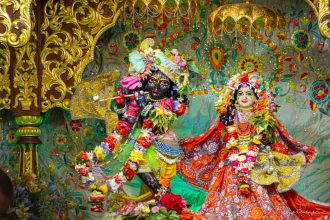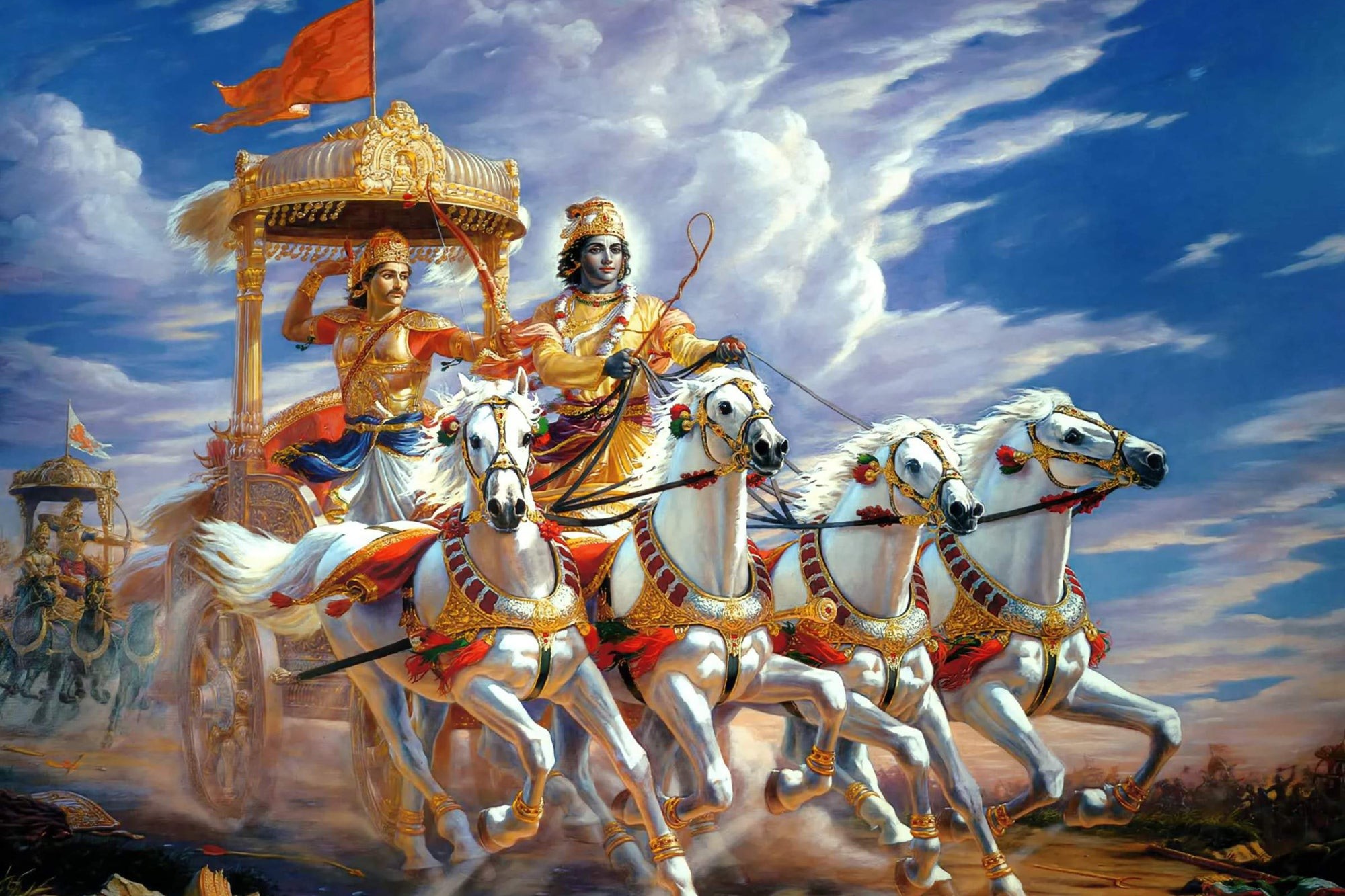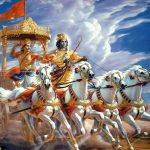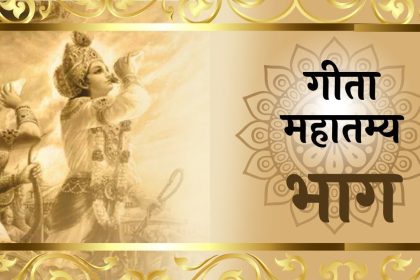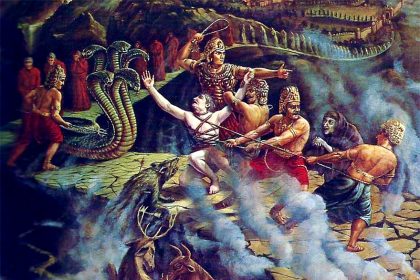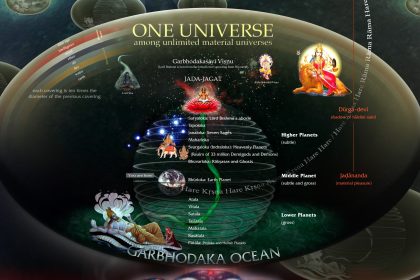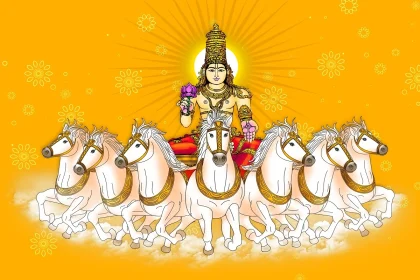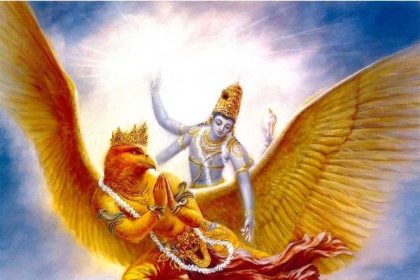TEXT 30
mayi sarvāṇi karmāṇi
sannyasyādhyātma-cetasā
nirāśīr nirmamo bhūtvā
yudhyasva vigata-jvaraḥ
SYNONYMS
mayi—unto Me; sarvāṇi—all sorts of; karmāṇi—activities; sannyasya—giving up completely; adhyātma—with full knowledge of the self; cetasā—by consciousness; nirāśīḥ—without desire for profit; nirmamaḥ—without ownership; bhūtvā—so being; yudhyasva—fight; vigata-jvaraḥ—without being lethargic.
TRANSLATION
Therefore, O Arjuna, surrendering all your works unto Me, with full knowledge of Me, without desires for profit, with no claims to proprietorship, and free from lethargy, fight.
PURPORT
This verse clearly indicates the purpose of the Bhagavad-gītā. The Lord instructs that one has to become fully Kṛṣṇa conscious to discharge duties, as if in military discipline. Such an injunction may make things a little difficult; nevertheless duties must be carried out, with dependence on Kṛṣṇa, because that is the constitutional position of the living entity. The living entity cannot be happy independent of the cooperation of the Supreme Lord, because the eternal constitutional position of the living entity is to become subordinate to the desires of the Lord. Arjuna was therefore ordered by Śrī Kṛṣṇa to fight as if the Lord were his military commander. One has to sacrifice everything for the good will of the Supreme Lord, and at the same time discharge prescribed duties without claiming proprietorship. Arjuna did not have to consider the order of the Lord; he had only to execute His order. The Supreme Lord is the soul of all souls; therefore, one who depends solely and wholly on the Supreme Soul without personal consideration, or in other words, one who is fully Kṛṣṇa conscious, is called adhyātma-cetas. Nirāśīḥ means that one has to act on the order of the master but should not expect fruitive results. The cashier may count millions of dollars for his employer, but he does not claim a cent for himself. Similarly, one has to realize that nothing in the world belongs to any individual person, but that everything belongs to the Supreme Lord. That is the real purport of mayi, or “unto Me.” And when one acts in such Kṛṣṇa consciousness, certainly he does not claim proprietorship over anything. This consciousness is called nirmama, or “nothing is mine.” And if there is any reluctance to execute such a stern order, which is without consideration of so-called kinsmen in the bodily relationship, that reluctance should be thrown off; in this way one may become vigata-jvara, or without feverish mentality or lethargy. Everyone, according to his quality and position, has a particular type of work to discharge, and all such duties may be discharged in Kṛṣṇa consciousness, as described above. That will lead one to the path of liberation.
TEXT 31
ye me matam idaṁ nityam
anutiṣṭhanti mānavāḥ
śraddhāvanto ‘nasūyanto
mucyante te ‘pi karmabhiḥ
SYNONYMS
ye—those who; me—My; matam—injunctions; idam—these; nityam—as an eternal function; anutiṣṭhanti—execute regularly; mānavāḥ—human beings; śraddhā-vantaḥ—with faith and devotion; anasūyantaḥ—without envy; mucyante—become free; te—all of them; api—even; karmabhiḥ—from the bondage of the law of fruitive actions.
TRANSLATION
Those persons who execute their duties according to My injunctions and who follow this teaching faithfully, without envy, become free from the bondage of fruitive actions.
PURPORT
The injunction of the Supreme Personality of Godhead, Kṛṣṇa, is the essence of all Vedic wisdom and therefore is eternally true without exception. As the Vedas are eternal, so this truth of Kṛṣṇa consciousness is also eternal. One should have firm faith in this injunction, without envying the Lord. There are many philosophers who write comments on the Bhagavad-gītā but have no faith in Kṛṣṇa. They will never be liberated from the bondage of fruitive action. But an ordinary man with firm faith in the eternal injunctions of the Lord, even though unable to execute such orders, becomes liberated from the bondage of the law of karma. In the beginning of Kṛṣṇa consciousness, one may not fully discharge the injunctions of the Lord, but because one is not resentful of this principle and works sincerely without consideration of defeat and hopelessness, he will surely be promoted to the stage of pure Kṛṣṇa consciousness.


